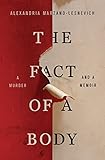This past year, I spent a huge portion of my non-work-related waking hours immersed in the national output of nonfiction books. Instead of reading for writing projects, as was my annual routine for many years, I was reading to determine a winner. But in a year that left so many of us battle-weary, the idea of winning seemed beside the point, perhaps even part of the problem. I wanted books to tell me that truth, reason, and probity will endure, and that people—some a lot like us and some more like us than we would have ever guessed—persevere. The books did and we do, over and over again. So here’s a tribute to some of the non-winners.
The Apparitionists by Peter Manseau
This account of the work and criminal trial of “spirit photographer” William Mumler is fascinating for reasons historic and contemporary. In the years following the Civil War, as a nation mourned its dead and longed for a lost innocence, Americans turned to religion and religion turned to the supernatural. Mumler’s most explosive portrait work challenged photography’s verities by claiming to represent images of the dead returning to comfort the living. Unlike Kevin Young’s Bunk, which roams widely to uncover racialized Othering as the deep stream of our attraction to spectacular hoaxes, Manseau’s book sticks closely to the facts of Mumler’s case. But in our own era of war, “fake news,” and spiritual unrest, the story feels more than merely suggestive.
 The Fact of a Body by Alexandria Marzano-Lesnevich
The Fact of a Body by Alexandria Marzano-Lesnevich
This unusual book brings together the case of the murderous pedophile Ricky Langley with the author’s harrowing memoir of sexual abuse. As Marzano-Lesnevich, who is training to become a public defender, dives into the research on Langley’s case, she is drawn back into her own personal and family traumas. At that point it becomes a powerful #metoo story and a deep meditation on the stories we tell each other in order to continue. It ponders the incompleteness of the law as remedy, and how the process of finding truth enables and suppresses. And it also plumbs the depths of our current discussion—now that the horrors of powerful men, including some of our former heroes, have been publicly named—about whether redemption is possible or desirable.
 The Evolution of Beauty by Richard Prum
The Evolution of Beauty by Richard Prum
What if science and art were not only compatible, but inseparable? Prum argues that the way we receive Charles Darwin’s theory of evolution—that only the fittest can survive—is incomplete, even dangerously so, as in the rise of the racist pseudo-science of eugencics. Darwin, Prum notes, actually argued that such a selection process would never explain nature’s diversity. Instead, bird sex, like human sex, is not merely functional and utilitarian, but about pleasure and taste. He moves on to consider surprising new directions for evolutionary history, such as how it might understand queerness, the end of patriarchy, and the centrality of arts and culture. “Beauty happens,” Prum writes, and thank goodness for that.
 Letters to Memory by Karen Tei Yamashita
Letters to Memory by Karen Tei Yamashita
Gifted—or burdened—with the papers of her aunts and parents and grandparents, all survivors of the World War II Japanese American concentration camps, Karen Tei Yamashita constructs a structurally cunning, richly literary, and deeply moving tribute to the lives of her kin. The book unfolds as a series of letters to a set of imagined muses, all of which reference her family’s real letters. Some detail a story of her idealistic young aunt, who is afforded a temporary freedom as a witness in a government case, and the family locked away in the camps. What are her obligations to them? Is it folly or selfishness that makes her think she may be of more help to them on the outside? These letters remind us that, once perpetrated, injustice cannot be reduced or forgotten.
More from A Year in Reading 2017
Don’t miss: A Year in Reading 2016, 2015, 2014, 2013, 2012, 2011, 2010, 2009, 2008, 2007, 2006, 2005









